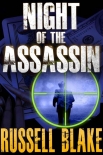The Cutthroat, Clive Cussler [best ereader for manga txt] 📗

- Author: Clive Cussler
Book online «The Cutthroat, Clive Cussler [best ereader for manga txt] 📗». Author Clive Cussler
“To find if she had a boyfriend, who might have followed her to New York?”
“Exactly.”
“I thought you were sure she didn’t.”
“I’m not sure of anything anymore, including whether the murder was personal. So we’re back to the question we ask about every crime: Who had motive?”
“Who had a motive?” asked Joseph Van Dorn.
“A boyfriend, or a disappointed suitor, or a lunatic,” said Bell.
“In other words,” growled the Boss, “you’ve learned nothing about him.”
The powerfully built, red-whiskered founder of the Van Dorn Detective Agency was a hard-nosed, middle-aged Irishman who had immigrated to America, alone, at age fourteen. Prosperous now by his own hand, “the Boss” had been born with little more than the charm and natural good cheer to cloak his fierce ambition and a deep hatred of criminals who abused the innocent. His manner, that of a friendly businessman, had surprised many a convict who found himself manacled facedown on the floor, having allowed the big, smiling gent to get close.
Isaac Bell had apprenticed under Joseph Van Dorn. The Boss had introduced the banker’s son to the lives lived by people he dubbed “the other ninety-seven percent of humanity” and had trained a champion college boxer in the “art of manly defense” bred to win street fights with fists, guns, and knives. To say that Isaac Bell would march into Hades with Van Dorn on short notice would be to underestimate his gratitude.
“Your report states that Mike Coligney’s plainclothes boys found her body.”
“The actor whose home was the apartment where the girl was murdered used his landlady’s telephone to call the police.”
“As well he should, for a police matter,” Van Dorn said sharply with a sharper glance at his Chief Investigator.
Bell said, “He called the police because he had no way of knowing that Anna Waterbury’s father hired the Van Dorn Detective Agency to find his daughter.”
“What do you mean by that?”
“I mean that the client believed in us and trusted us. The Van Dorn Detective Agency is morally bound to find her killer.”
Joseph Van Dorn shook his head. “The police have the men—patrol officers and detectives and their informants.”
“We are more qualified to find the guilty man and build a case that sticks.”
“It is a police matter,” said the Boss. “Leave it to the police. They know the neighborhood.”
“I’ve already sent Helen Mills to Waterbury to persuade Anna’s mother to let her read the girl’s diary.”
“What for?”
“In case,” said Isaac Bell, “the murderer didn’t live in the neighborhood.”
9
When the Springfield, Massachusetts, Christ Church choir practiced for Easter service, every singer cocked her ear to hear Mary Beth Winthrop set the standard for the first sopranos.
“Lift up your heads,
O ye gates,
and be yet lift up,
ye everlasting doors . . .”
Tenors and basses responded,
“Who is the King of Glory?
Who is the King of Glory?”
Mary Beth Winthrop raised her eyes to the stained-glass rose window and prayed:
Faster. Put on some steam.
Glaciers rumbled at a quicker tempo than choirmaster Fluecher conducting the boys through endless “Who is the King of Glory”s.
Faster, please.
Mr. Fluecher heard a note he didn’t like and stopped them dead. Rapping his knuckles on his music, he compared the tenors’ pitch to a derailing freight train.
A fire. A small fire in a wastepaper basket.
The smoke would drive them out of the church and in the confusion no one would notice her gallop to the Shubert Theatre. Dr. Jekyll and Mr. Hyde, which had come to Springfield for a week, straight from Boston and New York, was leaving today for Albany. But not before Barrett & Buchanan replaced the soprano who sang “Amazing Grace,” a cappella, in the funeral scene. A piece of a biplane had fallen on the poor girl and a wonderful opportunity had blossomed only five blocks from Christ Church at the Shubert.
Right now, at this very moment, they were hearing singers try out for the role while Mary Beth—who sang in perfect pitch always, “and even would in a locomotive factory,” Mr. Fluecher claimed when he held her up as an example to the others—was stuck in choir practice. Not only could she outsing each and every one of them, she could also act circles around any girl in Springfield.
Maybe her yellow hair was not as long and thick as she would like, which wasn’t to say it was stringy. And she knew she wasn’t as pretty as the girls who couldn’t sing on pitch. Not with her round moon face. Except, when she looked closely at pictures on sheet music and magazines, the stars’ faces were as round as dinner plates—a shape that caught attention and projected their voices. So it didn’t matter not being as pretty. She would get the part. If she weren’t stuck in choir practice.
At last, it was over, and she ran all the way to the theater.
The sight of pieces of a New York City subway car rolling from the stage door alley on a freight wagon told her she was too late. Dr. Jekyll and Mr. Hyde was leaving town. Company members were walking to the railroad station, the stagehands were striking the sets, and the Shubert’s manager was directing assistants on ladders who were changing the marquee:
*MATINEE TOMORROW*
ALIAS JIMMY VALENTINE
Direct from NEW YORK and PHILADELPHIA
“Top O. Henry Short Story Topped Onstage”
—VARIETY
Mary Beth Winthrop wandered away, numb with grief, until she sank to a park bench and wept. She had missed the reading. Some other girl got the role.
“Are you quite all right, miss?”
She looked up. An older gentleman with a kind face was leaning over her, balanced on a cane. “What’s the matter?” he asked, and when her tears flowed harder, he sat beside her and offered a snowy handkerchief with his initials embroidered in red. “Here, miss. Dry your eyes.”
She did as he said, and sniffled, “Thank you, sir.”
“Can you tell





Comments (0)